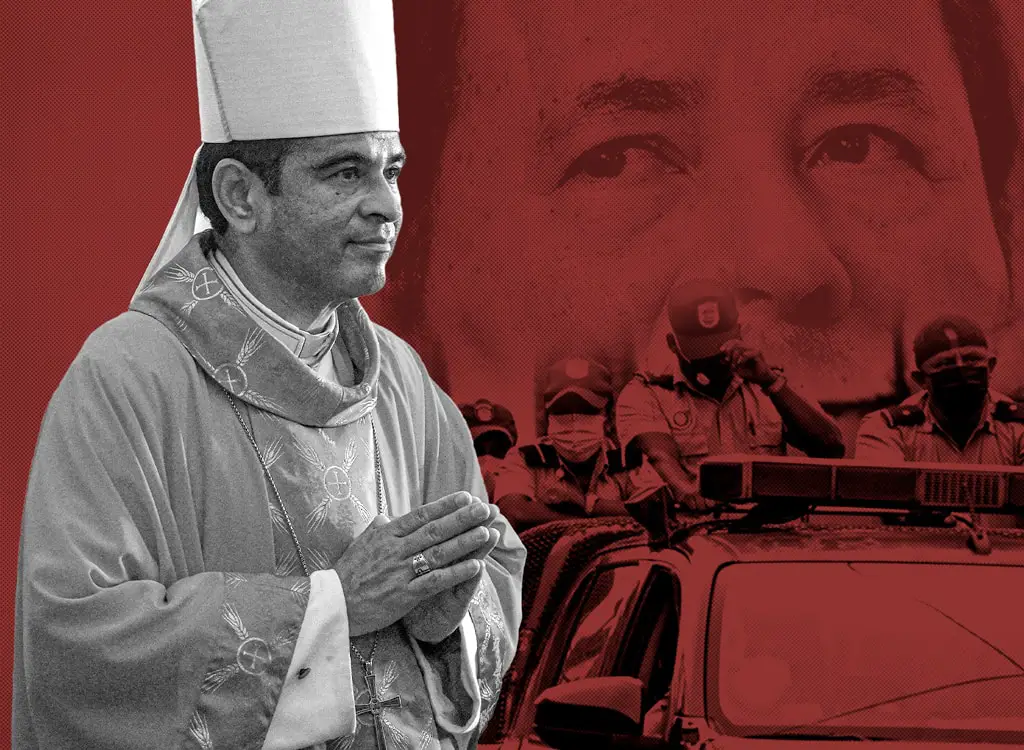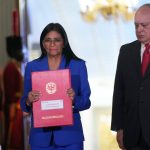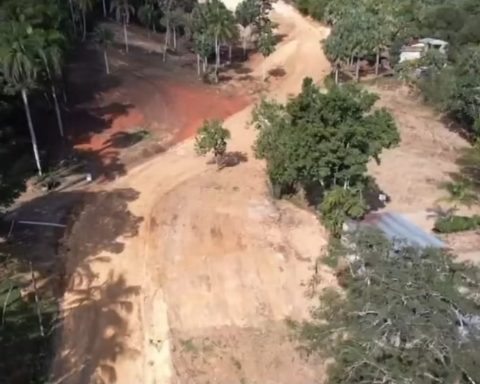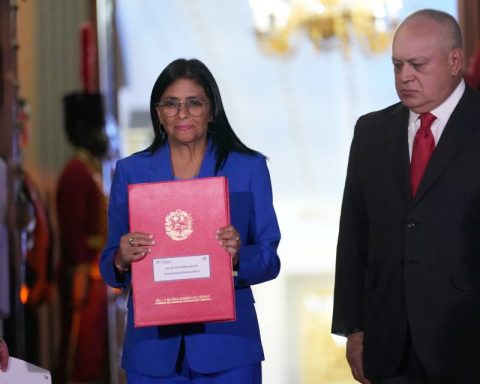Sources linked to the Catholic Church revealed to CONFIDENTIAL that since Thursday of last week Monsignor Rolando Álvarez, Bishop of Matagalpa, “is alone, in a maximum security cell in the Modelo prison.”
The sources reported that the authorities of the penitentiary system of the Modelo prison in Tipitapa allowed personal hygiene products to be sent to the bishop.
Monsignor Alvarez is “very serene, full of God, aware and firm of the decision he adopted,” refusing to accept the banishment order to the United States imposed by the Daniel Ortega regime on 222 political prisoners, the source said.
Less than 24 hours after Daniel Ortega publicly attacked Monsignor Rolando Álvarez, Bishop of Matagalpa, Judge Nadia Tardencilla Rodríguez, of the Second District Trial Court in Managua, sentenced him on Friday, February 10, 2023 to 26 years and 4 months. imprisonment in a process considered by experts as a “criminal action”.
The court ruling indicates that the priest was given ten years for the alleged crime of conspiracy, five years for spreading false news, five years and four months for “aggravated obstruction of functions” and one year for “disrespect for authority.”
Álvarez was also stripped of his nationality, he was fined 58,000 córdobas – equivalent to 1,555 dollars – and permanently disqualified from public office and popular election, according to the resolution of the judiciary.
The bishop was also transferred by Ortega’s orders to the La Modelo prison in Tipitapa, north of Managua, after he refused to accept the banishment order to the United States last Thursday, February 9, for 222 prisoners of conscience, who were sent by the Nicaraguan regime to the United States.
Judge Tardencilla complied with the order with the sentence executed on Friday, February 10, in an express trial that was scheduled for Wednesday, February 15.
Among the anomalies pointed out by the lawyers consulted by CONFIDENTIAL it is found that Álvarez’s sentence included two crimes for which he had not been charged: aggravated obstruction of functions and disobedience to authority.
In a legal analysis, the Nicaraguan Center for Human Rights (Cenidh) maintained that these are reprehensible actions against Monsignor Álvarez, “the most innocent of the innocent, and we warn that this perverse action of the regime is the reaffirmation of the total destruction of the institutional framework and the rule of law in Nicaragua. We warn that the safety and life of Monsignor is at risk.
They didn’t even listen to the witnesses
The sentence was handed down five days before the appointment of the witnesses for the case, as was foreseen according to the information published at the time. MosaicCSIa media benchmark in the north of the country.
The jurists said that they even have doubts about whether the formal trial process was carried out, because the judge should have debated the sentence and the sentence in one day, judging by the expedited process of condemning the religious.
Cenidh described the process as a judicial farce and said that they had information that there was “no trial in this case.”
Before Ortega’s order to take him to the prison in Tipitapa, Álvarez had been in a family residence in Managua since last August 19 when he was forcibly transferred by the Police after the assault by special troops on the Matagalpa Curia. .
“The summons to trial was solely for the crimes of conspiracy to undermine national integrity and propagation of false news, however, today he is sentenced for other crimes: aggravated obstruction of functions and disobedience or contempt of authority,” he insisted. the renowned human rights body.
Judge Rodríguez has a record of persecuting political prisoners and is part of a machinery that responds to the interests of Ortega, made up of police officers, prosecutors, judges and magistrates. On July 15, 2022, she was sanctioned on a list of 22 justice operators that the United States punished for participating in human rights violations committed by the dictatorship.
??? URGENT COMMUNICATION | We repudiate criminal actions of the Ortega Murillo regime against Monsignor Rolando Álvarez. Your safety and his life are at risk.#LibertadParaMonseñorÁlvarez#Is innocent#SOSNicaragua pic.twitter.com/QxxIY1VWMw
— Cenidh (@cenidh) February 11, 2023
Cenidh ratified that no one can be sentenced for any crime that “has not been charged.” He also criticized the stripping of Álvarez’s nationality, for which a constitutional reform was applied that is not in force, because its approval would be needed in two legislatures and the second begins until January 9, 2024.
This constitutional amendment was approved hours after the exile of the 222 prisoners of conscience and, according to the president of the National Assembly, Gustavo Porras, one of Ortega’s closest operatives and Vice President Rosario Murillo, was given in order to seek “the peace” for the country.
For a consulted criminal lawyer, Álvarez’s trial shows how the system works and added that the decision to strip the bishop and the other political prisoners of their nationality violates the international agreements signed by Nicaragua.
The lawyer found it “strange and completely irregular” that Judge Tardencilla did not read her sentence. Instead, magistrate Octavio Ernesto Rothschuh Andino, president of Criminal Chamber One of the Managua Court of Appeals (TAM), addressed the audience.
“A magistrate of the court of appeals cannot under any point of view read a sentence that has been handed down by a judge of first instance. Because it may be appealed against and in the draw the case may fall in his office, ”explained one of the lawyers consulted in reference to Rothschuh’s actions.
The magistrate is part of the TAM, another repressive link that has sided with the executive in its viciousness against political prisoners. Rothschuh’s participation in party political activities in favor of the FSLN is well known, of which there have been many photographic records for years in the media.
Judicial officials with responsibilities
The criminal lawyer said that there are two types of responsibilities in the case of Álvarez and of all political prisoners: individual and collective.
The expert added that the Police committed the crime of abuse of authority, just like the prosecutors. The latter incurred in false accusation, offered false witnesses and experts, those who lied before the courts incurred in false testimony, while the judges and magistrates in prevarication and torture.
“This from the individual point of view, but joint, systemic action cannot be ignored, a crime against humanity of persecution and forced imprisonment against Monsignor Álvarez is committed, as established in the Rome Statute,” added the source.

















